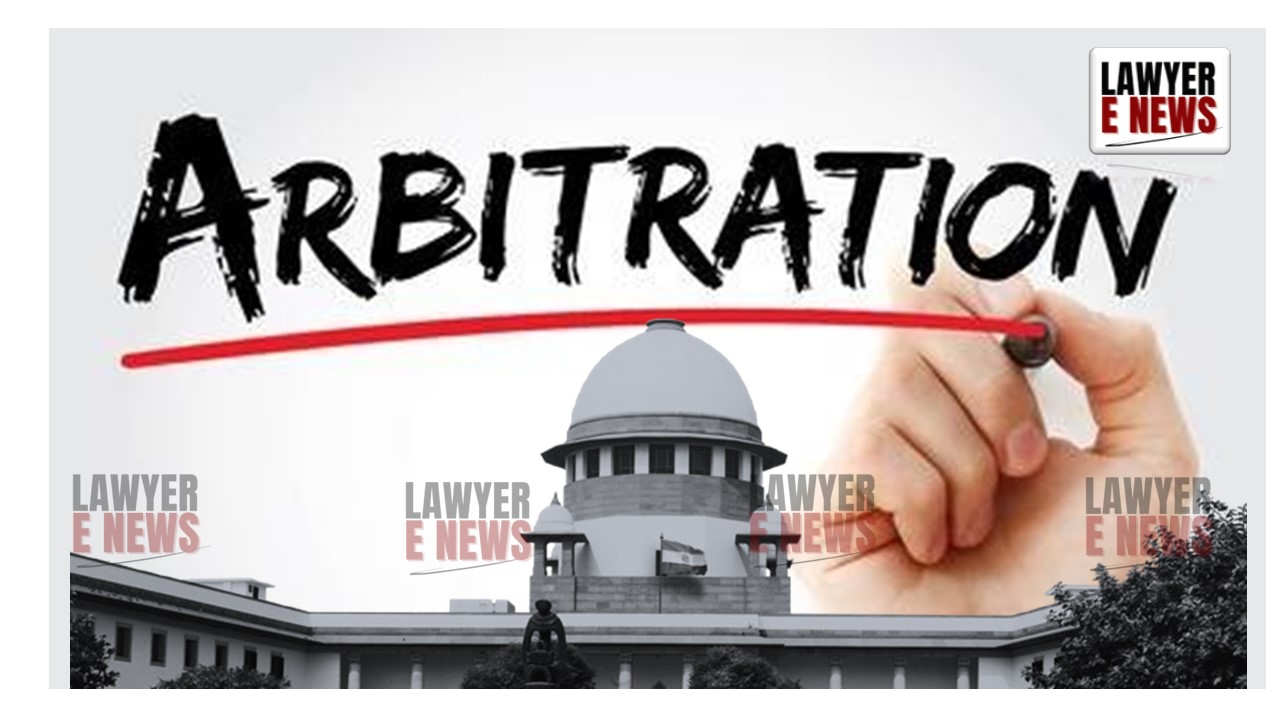-
by sayum
14 February 2026 2:22 PM



The Supreme Court, in a landmark decision dismissed a fresh application for arbitration, filed under Section 11(6) of the Arbitration and Conciliation Act, 1996, by M/s Shahaji Bhanudas Bhad against M/s HPCL Bio-Fuels Ltd. The decision, while affirming the primacy of procedural safeguards in arbitration cases, invoked the principles of Order 23 Rule 1 of the Code of Civil Procedure, 1908 (CPC) and addressed key issues of limitation and procedural conduct in arbitration matters.
Justice Pardiwala emphasized that, in the absence of explicit liberty granted when the first arbitration petition was withdrawn, a subsequent application on the same cause of action is precluded under principles analogous to Order 23 Rule 1 of the CPC. The Court found that Shahaji Bhad, the respondent, had consciously abandoned the arbitration route in favor of insolvency proceedings and could not now be permitted to revert to arbitration without fulfilling procedural requirements.
On November 7, 2024, the Supreme Court issued a final judgment in M/s HPCL Bio-Fuels Ltd. v. M/s Shahaji Bhanudas Bhad, Civil Appeal No. 12233 of 2024, stemming from a dispute over contractual payments. Initially, the National Company Law Tribunal (NCLT) in Kolkata had admitted insolvency proceedings against HPCL Bio-Fuels on a Section 9 application filed by Shahaji Bhad. However, the National Company Law Appellate Tribunal (NCLAT) reversed the NCLT’s decision, citing a "pre-existing dispute," and this was upheld by the Supreme Court in 2022.
Subsequently, Shahaji Bhad filed a fresh petition under Section 11(6) of the Arbitration Act, seeking the appointment of an arbitrator to resolve the same dispute. HPCL Bio-Fuels challenged the maintainability of this second arbitration application on grounds of limitation and procedural bar due to the withdrawal of the first arbitration application in 2018.
Background of the Case
The dispute dates back to 2014 when Shahaji Bhad claimed outstanding dues from HPCL Bio-Fuels under a lumpsum turnkey contract. Arbitration was invoked by the respondent in 2016 but was subsequently withdrawn without seeking liberty to refile. Instead, the respondent pursued insolvency proceedings in 2018, which were ultimately dismissed in 2022 due to the existence of a pre-existing dispute. Following this, Shahaji Bhad approached the Bombay High Court under Section 11(6), which appointed an arbitrator, leading HPCL Bio-Fuels to appeal to the Supreme Court.
The Court held that while Section 11(6) applications under the Arbitration Act are not technically "suits," the principles underlying Order 23 Rule 1 can apply to arbitration proceedings to prevent abuse of process. Justice Pardiwala observed, "The legislative intent behind Order 23 Rule 1 is to avoid protracted litigation on the same cause of action by ensuring that withdrawal of an application without liberty to refile operates as a procedural bar to subsequent applications."
The Supreme Court reaffirmed that the limitation period for filing a Section 11(6) application is three years from the date of the cause of action, as per Article 137 of the Limitation Act. Shahaji Bhad’s second application, filed in 2022, was clearly outside this period. The respondent’s argument that the time spent in pursuing insolvency proceedings should be excluded under Section 14 of the Limitation Act was rejected. The Court clarified that insolvency proceedings under IBC are fundamentally different from arbitration and do not seek the "same relief" as required by Section 14(2) for exclusion.
Justice Pardiwala observed that insolvency proceedings are distinct in nature from arbitration applications, as they aim to resolve the collective claims of creditors rather than to enforce a specific claim by an individual creditor. Consequently, the benefit under Section 14(2) of the Limitation Act, meant for excluding time spent in a wrong forum for the "same relief," was held inapplicable.
"Insolvency proceedings are not intended to be a debt recovery mechanism but rather aim to resolve the entirety of the debtor’s obligations to all creditors, thus differing in scope and purpose from individual arbitration claims," the judgment noted.
The Court examined whether the delay in filing the fresh Section 11 application could be condoned under Section 5 of the Limitation Act, which allows discretionary extension of limitation for appeals or applications. Noting the respondent’s lack of good faith and conscious choice to abandon arbitration in favor of IBC proceedings, the Court found no grounds to condone the delay.
"Section 5 of the Limitation Act, though applicable to arbitration applications, must be exercised with caution and only in exceptional circumstances where the applicant demonstrates genuine impediments," stated the Court.
The Supreme Court allowed the appeal filed by HPCL Bio-Fuels, thereby setting aside the Bombay High Court’s order appointing an arbitrator. In its closing remarks, the Court underscored the importance of procedural discipline in arbitration and insolvency proceedings, emphasizing that litigants cannot freely switch between legal remedies to circumvent procedural requirements.
Principles of Order 23 Rule 1 Extended to Arbitration Applications: The ruling clarifies that, in the absence of liberty to refile, an application under Section 11(6) cannot be refiled based on the same cause of action once withdrawn.
Distinct Purposes of IBC and Arbitration Proceedings: The decision underscores that insolvency proceedings under the IBC are collective, in-rem proceedings and cannot be equated with private, in-personam arbitration proceedings.
Time-Barred Applications and Condonation of Delay: The Court reaffirmed that while Section 5 of the Limitation Act applies to arbitration applications, delay condonation is discretionary and requires a strong factual basis, which was lacking in this case.
Clarification on "Liberty to Avail Remedies" by the Supreme Court: The liberty granted by a court to pursue alternative remedies is not a blanket approval to sidestep procedural bars or limitation periods.
Date of Decision: 07 November , 2024
